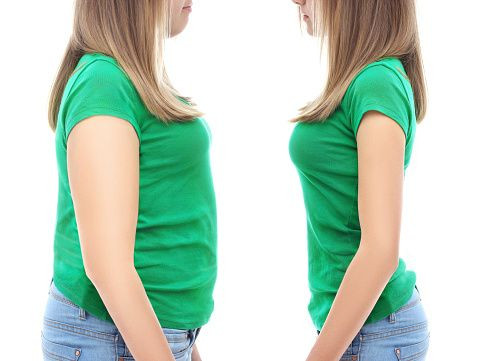The Strange Way Your Height And Weight May Affect Your Annual Income

“Your face is your fortune.” “Style over substance.” While every fiber of your being may revolt against these superficial ideas, new research from the University of Exeter echoes a similar theme. Your chances in life are defined by your appearance, according to the researchers, whose evidence indicates shorter men and overweight women earn lower incomes than their taller, thinner peers.
The rich eat better than the poor, the researchers explained, so higher socioeconomic status tends to go hand-in-hand with taller stature and lower body mass index (BMI). Led by Dr. Tim Frayling, a medical school professor, the team wondered whether these effects might run in the opposite direction. In other words, could taller stature and lower weight improve a person’s socioeconomic status due to “discrimination against shorter and fatter people or differences in self-esteem that affect employability?,” Frayling and his colleagues wondered in an introduction to the study.
Dollars and Sense?
The research team used information from the United Kingdom Biobank to study 120,000 participants whose ages ranged from 40 to 70. The team looked at each participant’s actual height and weight, as well as analyses of 400 genetic variants linked to height and 70 linked to weight, to determine whether shorter stature or higher BMI could lead to lower chances in life. (The participants provided descriptions about their lives for comparison.)
They discovered a mere 3 inches in height for men and 14 pounds of weight for women related to a world of difference. Shorter men earned an income of about $2,130 less per year than than their 3-inch-taller counterparts. A woman 14 pounds heavier similarly earned $2,130 less per year than a comparable, though thinner, woman. This video, courtesy of British Medical Journal, explains how the researchers conducted the study:
“This won't apply in every case, many shorter men and overweight women are very successful,” Frayling commented in a press release. “Is this down to factors such as low self-esteem or depression, or is it more to do with discrimination? In a world where we are obsessed with body image, are employers biased?”
Though cynics will automatically answer “yes,” past research suggests the truth may be somewhat more complicated than a simple knee-jerk reaction to surface appearances — but still not entirely free from bias. A 2012 study from researchers at University of Stirling suggests that, while attractive individuals are indeed more likely to be hired, timing and the type of job or tasks involved are key parts of the equation, too.
“Individuals whose appearance best matches perceived task competences are most likely selected,” wrote the researchers in their published work, referencing the fact that more dominant-appearing leaders tend to be elected during wartime, while “feminine-faced leaders” often win elections during peacetime. Surely prejudice at work again, but in a more elaborate way than might be expected.
Perhaps shorter men and more full-bodied women are the perfect candidates for certain jobs at certain times. As the University of Exeter’s authors suggest, further work is needed to understand the factors that shape our bodies as well as our socioeconomic status.
Source: Tyrrell J, Jones SE, Beaumont R, et al. Height, body mass index, and socioeconomic status: mendelian randomisation study in UK Biobank. BMJ. 2016.
Published by Medicaldaily.com



























